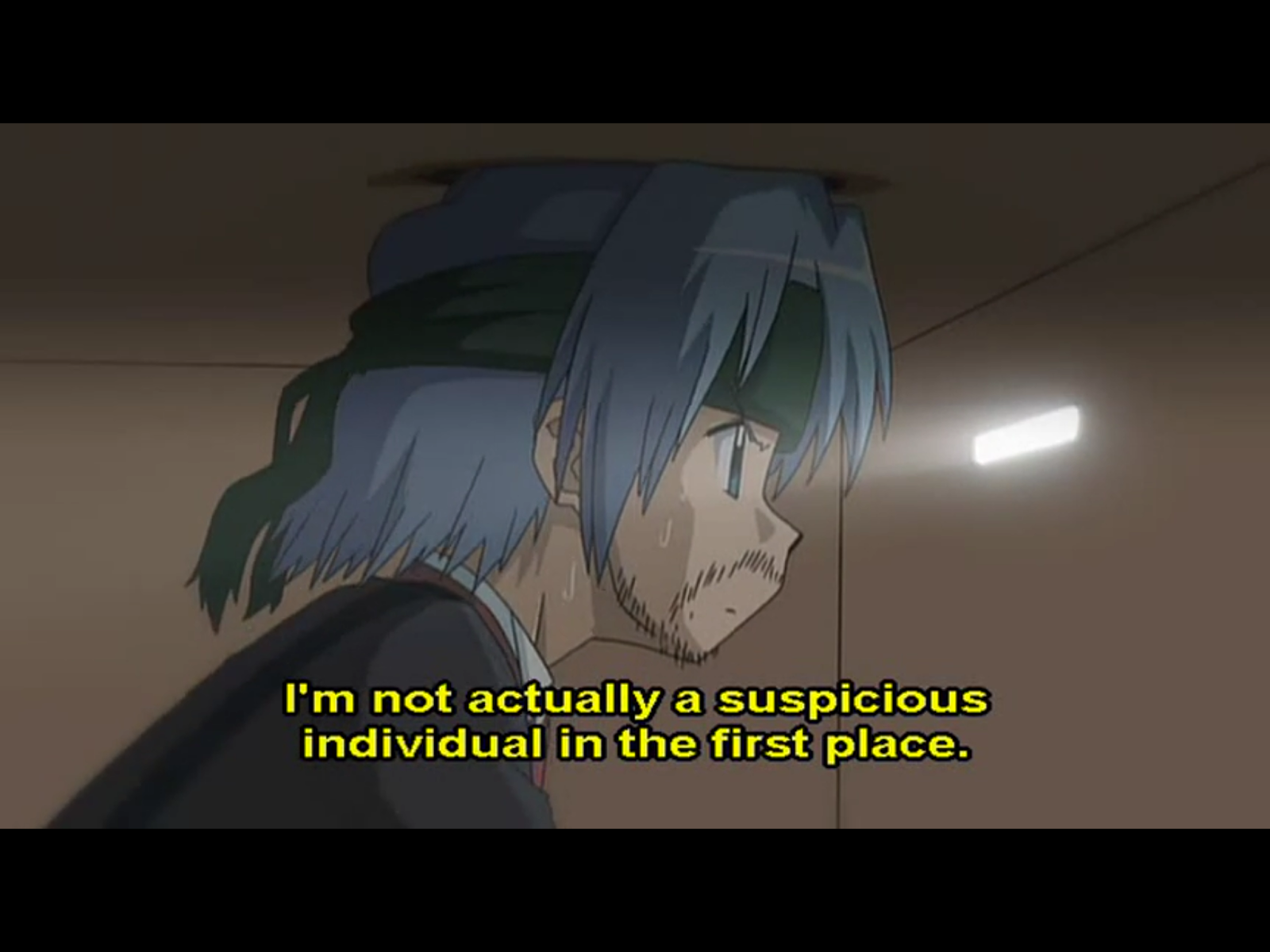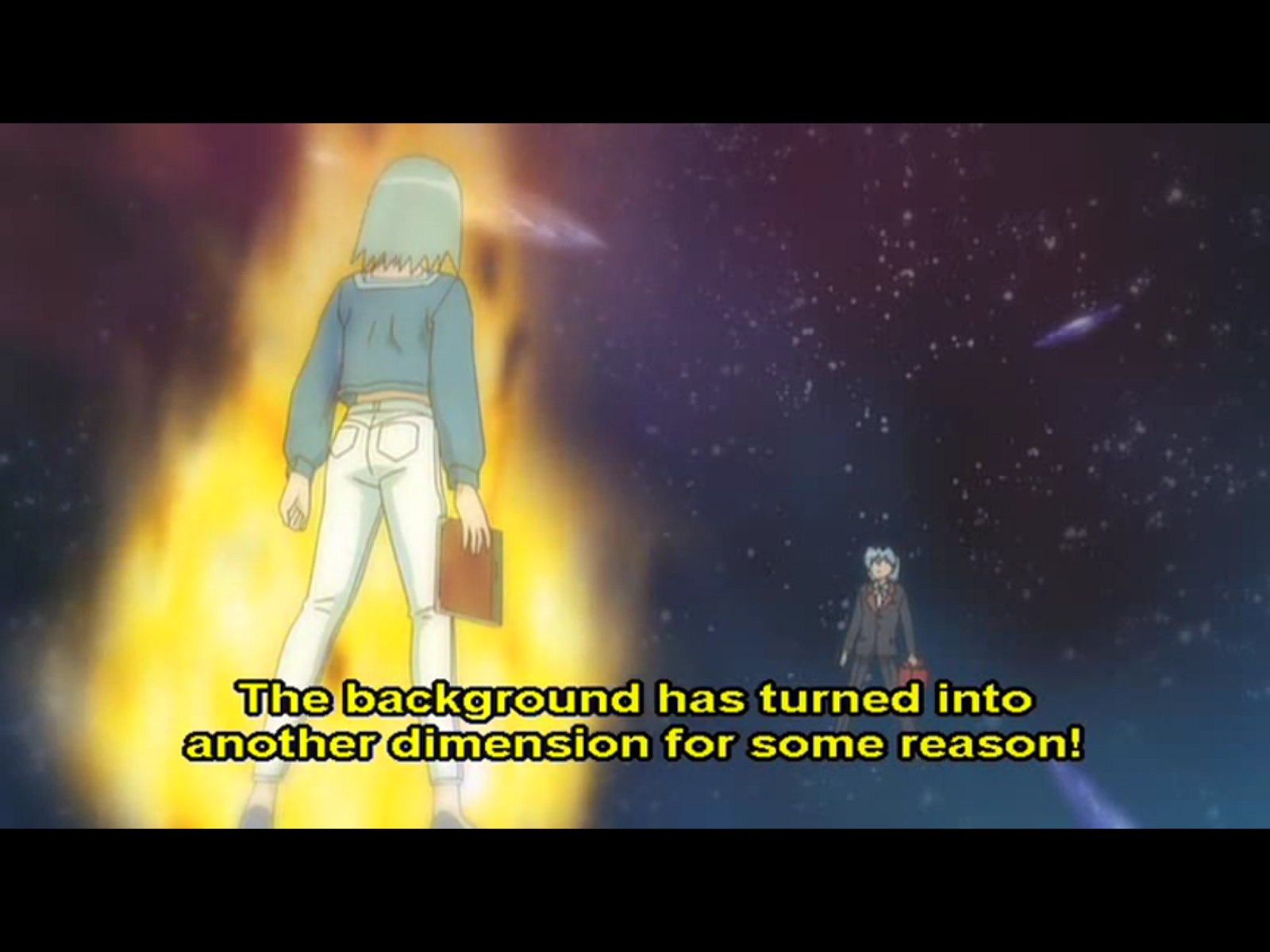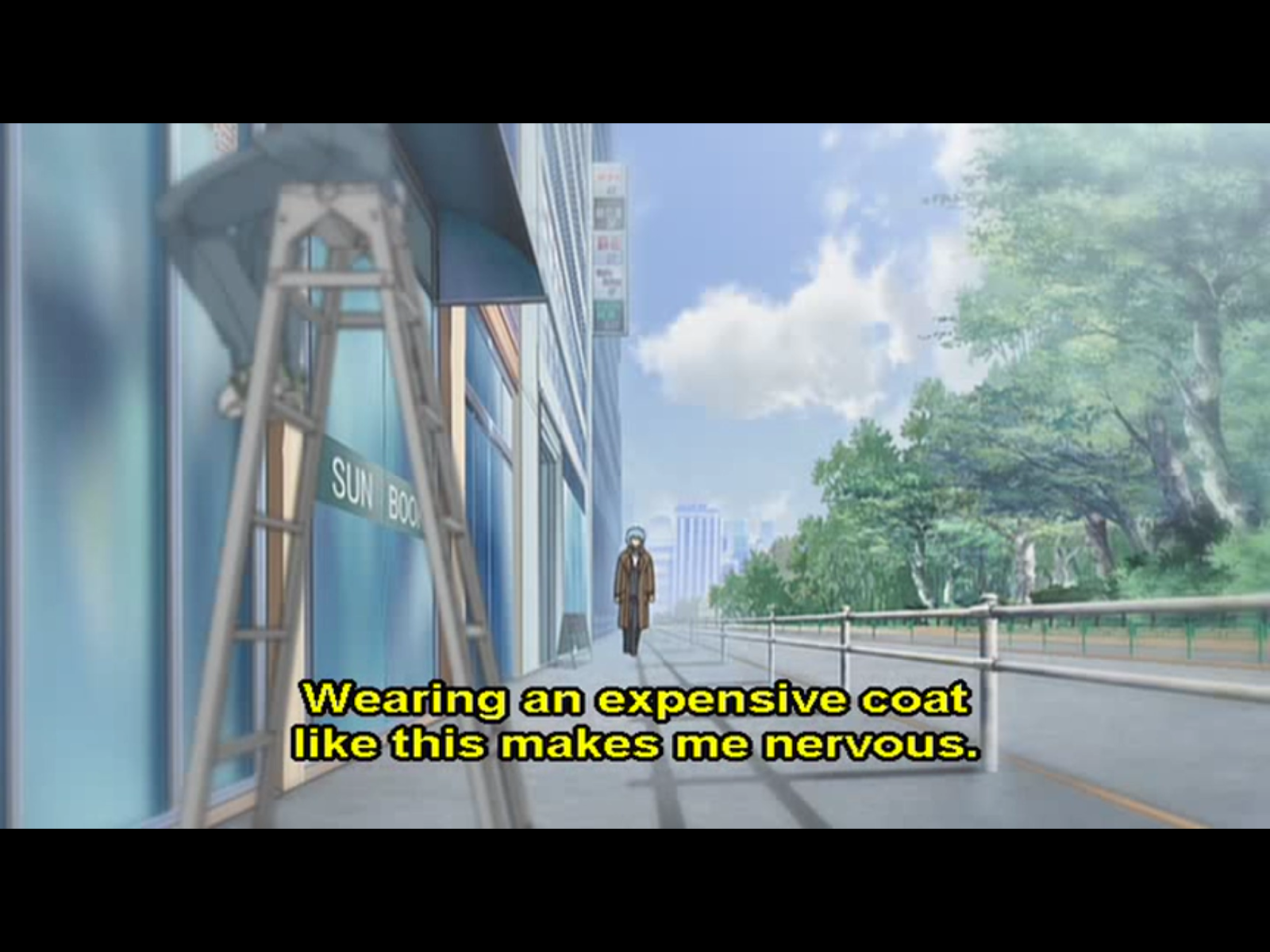Welcome back to Animondo, my personal platform for blabbering on and on about anime. Today, we're having a look at Hayate the Combat Butler. Specifically, Season 1. Because believe you me, you have to specify the season for this show--not for differences in quality, so much, but for drastic differences in style. The four seasons it has so far are quite a bit different from each other, and I'll aim to hit them all eventually. But for now, Season 1.
Hayate the Combat Butler is, as you might guess, a comedy involving a butler and, when it feels like it, combat. It absolutely tends more towards the comedy side, so don't go in expecting this to be some kind of parody of Dragon Ball Z or anything like that. It's more...it's kind of an odd sort of sitcom, just packed to the brim with game and anime references and with a somewhat unhinged sense of reality.
Hayate is a down-on-his-luck teen whose parents are worthless cretins who waste any money he manages to bring in with part time jobs by "investing in their dreams" (read: gambling and losing very badly). He does his best, but nothing ever seems to go his way, and it all comes to a head on Christmas Eve when his parents flee town to avoid debts to the Yakuza, who come to take possession of Hayate as payment. They figure they can make back some money by selling his organs on the black market. No, really.
Escaping, Hayate ends up deciding that hard work doesn't get you anywhere and it's time he started acting like a bad guy...so he'll kidnap some rich kid for ransom. Enter Nagi, a spoiled middle-schooler who happens to be an extremely wealthy heiress. Hayate works himself up to kidnapping her, but takes so long other thugs get to it first...and he ends up coming to the rescue instead. One thing leads to another, Nagi mistakes his pathetic attempt at begging her to cooperate with being kidnapped for a love confession, and things rapidly spiral out of control into her giving her "savior" a job as her butler. Hayate, thankful for this second chance, resolves to redeem himself by being the best butler he can.
Thus we have the premise: Hayate, a teen with the worst luck in the world but amazing physical capabilities and a seemingly never-ending list of job skills, serves as the butler (and sometimes protector) of Nagi, the spoiled heiress with a lot of money but not much else in the way of talents. In the mix as well are the kindhearted maid Maria, Nagi's gloriously eccentric relatives and friends (including poor clueless Isumi, probably my favorite), Hayate's old female friend from school who never got the chance to confess to him, the head butler Klaus (who doesn't like Hayate at all), Nagi's talking pet tiger (who only talks to Hayate), and many, many, many more. I haven't even listed all the important characters, much less every member of the cast! This show is huge.
Hayate the Combat Butler pulls in elements from quite a variety of types of anime to make its own sort of show. It has some elements of harem shows, some from school comedies, some from battle animes...it just kind of pulls in whatever it needs and stirs it all together. What's amazing is that it actually, for the most part, works amazingly well.
I love and adore this show.
Basically, it absolutely shouldn't work...but it does.
There are 52 episodes in Season 1 and a massive array of different running plots, so I'm not even going to attempt to describe the whole flow of events. Suffice to say, there are a few running themes. The show largely deals with Hayate's utterly awful luck and how it interacts with his pretty much superhuman capabilities, Nagi's crush on Hayate (which Hayate doesn't reciprocate, seeing her as just a kid, and in fact doesn't seem to realize she has), Maria's attempts to keep everything peaceful and make Nagi a better person, and the ever-increasing complications in Hayate's expanding circle of friendships, enemies, and actual love interests.
It bears noting that Nagi's crush is always treated as just that, a crush, and she's never portrayed in any way as a legitimate love interest for Hayate, who just sees her as a benefactor and has no romantic interest in her (something literally everyone recognizes but her). It's just a good source for comedy and occasional angst on her part.
Most episodes are reasonably self-contained, though they'll occasionally feed right in to the next episode--usually the plots won't actually connect much, other than just saying it's the next day or some such. There are some overarching plots from time to time, but the show revels in making those unimportant (the best of which is a "This Week's Butler Battle!" plot in which Hayate faces off against parodies of other battle / gaming anime characters in a plot that's supposedly the focus of the show, but in practice usually occupies thirty seconds to two minutes of the episode with no relation to anything else going on). It keeps the focus squarly on the sitcom sort of atmosphere, and for the most part you won't feel like you have to know much from prior episodes to enjoy any given episode.
This is one of those shows that I like to just watch when I want to cheer up or feel good in general. It is rarely if ever somber or anything less than outright cheerful, and while there are problems that arise, they're generally lighthearted and borne of misunderstandings rather than any actual danger or anything impossible to correct. The show never takes itself too seriously. I do appreciate, though, that for all that it is making references all over the place and breaking the fourth wall when it pleases, it manages to establish a set universe and keep consistent plots going. Characters are consistent and make sense, relationships do evolve as time goes on, and the comedy is part of the show--not the only thing that matters about it. The plots have a point--this isn't quite an utter madcap comedy. There are grounding elements to the show, and that's what helps make it so good.
There are a few nitpicks. A few episodes don't fit, such as Episode 10, which involves the characters getting pulled into an RPG but makes a few too many risque jokes considering the show's younger intended audience (it aired on a timeslot that limited what it could show, so the show frequently uses censorship of blood as a joke). Some are too out there and stretch the concepts too much, as well--normally, the show manages to establish some reasoning behind even crazy events, but every now and then things just happen because they happen and that's that. It doesn't hurt the show much, but it bears mentioning. Not every episode is gold...just most of them.
One other nitpick specifically for a Western audience--there are just going to be some jokes and references you won't get. While a lot of the referential humor of the series focuses on video games or anime concepts that Westerners will be familiar with, there are some bits that concern elements of Japanese culture that I, at least, wasn't as familiar with. It's not bad, obviously, since the show was made for Japan, after all...it just bears noting. The largest example is a running gag used in the middle of each episode (where commercial breaks would be, normally). Each episode has a couple still shots of characters accompanied by them saying a word or short phrase. What's actually going on is that the characters are playing a season-long game of Shiritori, a Japanese word game in which, basically, you have to begin your statement with the same sound the last person ended their statement on. It's a cute running joke, but obviously somewhat lost on those (like me) who don't actually speak Japanese. There are other examples, but usually much smaller.
One other nitpick specifically for a Western audience--there are just going to be some jokes and references you won't get. While a lot of the referential humor of the series focuses on video games or anime concepts that Westerners will be familiar with, there are some bits that concern elements of Japanese culture that I, at least, wasn't as familiar with. It's not bad, obviously, since the show was made for Japan, after all...it just bears noting. The largest example is a running gag used in the middle of each episode (where commercial breaks would be, normally). Each episode has a couple still shots of characters accompanied by them saying a word or short phrase. What's actually going on is that the characters are playing a season-long game of Shiritori, a Japanese word game in which, basically, you have to begin your statement with the same sound the last person ended their statement on. It's a cute running joke, but obviously somewhat lost on those (like me) who don't actually speak Japanese. There are other examples, but usually much smaller.
I also have to mention the rather odd ending of the show--not in much detail, but just in one particular light. It kind of jumps time forward a bit, putting friendships together that don't really get set up until the second season...which makes for a kind of odd overall feel for a final episode. Especially since the second season is just plain odd about how it relates to the timeline of the first, but I'll get to that when I do a second season review.
Hayate the Combat Butler is pure fun. For the most part, it is innocent, cheerful, and a bit strange--but not the sort of strange that distances you from the show. It ties things together even though there's no way they should possibly work, and you really have to pay attention to catch every little joke the show throws out there. It manages to create a fun comic atmosphere that doesn't take itself seriously at all, yet also makes you really care about the characters and get behind them. It is very self-aware and makes fun of itself frequently. It's one of my favorites. It doesn't hit right on 100% of the time...but it does so often enough that it's an easy recommendation for a lighthearted, fun-loving show.
Dubbed or Subbed? To the best of my knowledge, there is no dubbed version of Hayate the Combat Butler, unfortunately. The subbed version is very good, but I have to admit it'd be easier to catch the mile-a-minute references some episodes have if I could listen for them instead of reading. Not sure which I'd prefer if they were both available...but since there is no dub, it's academic.
In closing, a demonstration of just how much the show loves to lampshade Hayate's terrible luck:
In closing, a demonstration of just how much the show loves to lampshade Hayate's terrible luck:





















No comments:
Post a Comment